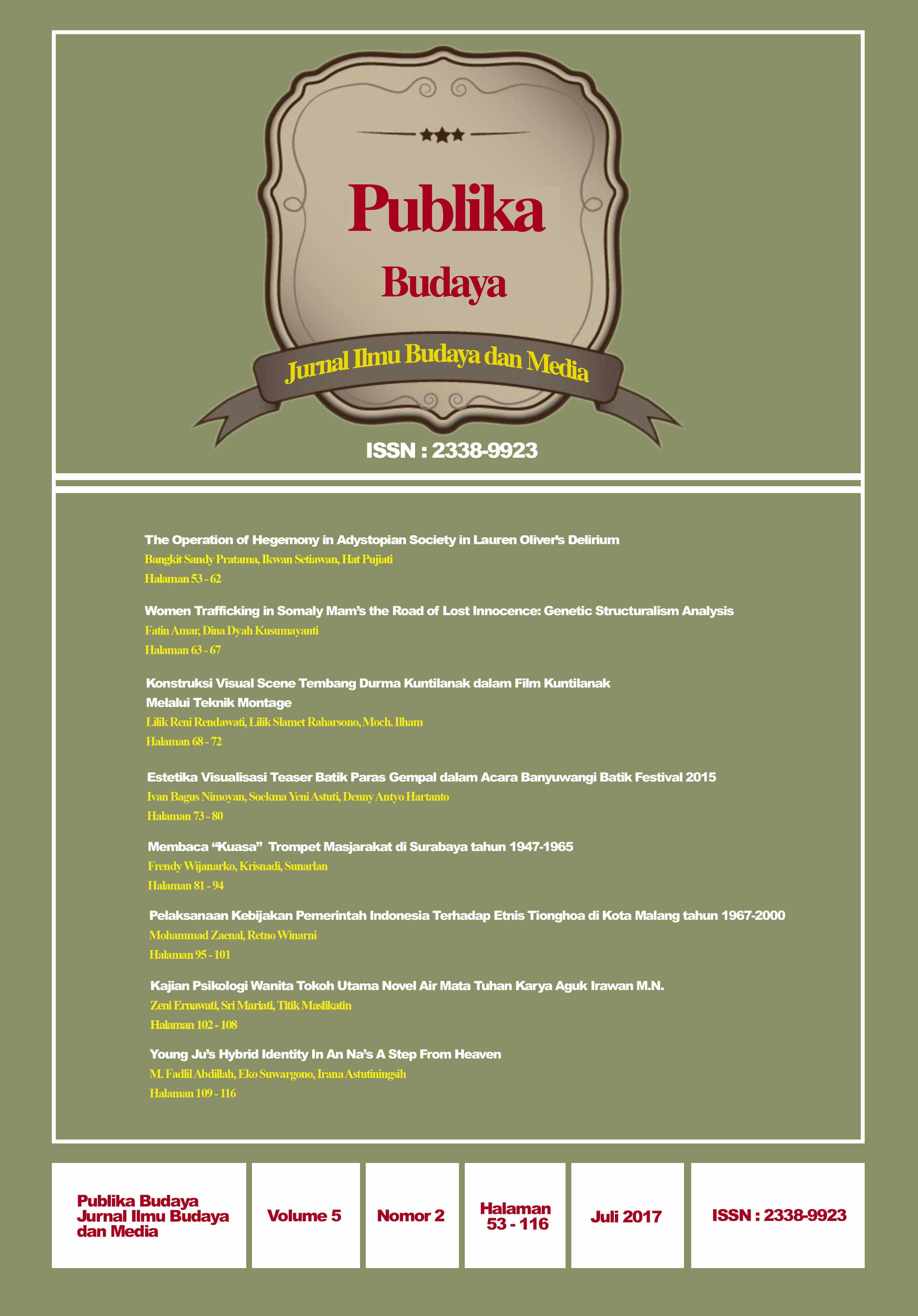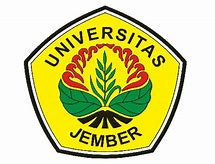WOMEN TRAFFICKING IN SOMALY MAM’S THE ROAD OF LOST INNOCENCE: GENETIC STRUCTURALISM ANALYSIS
Abstract
Abstract
The Road of Lost Innocence is the only one Somaly Mam's novel that was published in 2008, which set in the Cambodian twentieth century. This novel is focused on the perception of binary opposition between the trafficking and the anti-trafficking actions. The trafficking action belongs to the traffickers who are pro to women trafficking and the other one belong to the victims who are contra with the women trafficking practice. There are three goals of this study. The first is to find out about the women trafficking that are portrayed in The Road of Lost Innocence novel. This step will be focused on the binary opposition between the trafficking action in the life of lower class with the anti-trafficking action that are depicted in the novel. The second is to know about the social condition of Cambodian society in the twentieth century. The third is to know about the world view of the author that is represented in the novel. This article begins with the analysis of the novel and uses genetic structuralism theory. By applying Goldmann theory of genetic structuralism, we can analyze the structure of the text and Cambodian social structure as well as the world view of the collective subject of the author. The result of the study show that the binary opposition between master and victim thoughts in the trafficking practice that is represented in the novel intertwines with social-cultural condition in Cambodia in the twentieth century. The world view of the collective subject that the writer represents in the novel is anti-trafficking practice by resisting the existence of trafficking practice and struggle for humanity for all people.
Penulis yang mengusulkan naskahnya untuk dapat diproses penerbitannya pada Pustaka Budaya dianggap telah menyetujui beberapa hal sebagai berikut:
1. Penulis tidak dapat menarik naskah yang telah usulkan untuk diproses hingga mendapat jawaban dari Ketua Dewan Penyunting atas status naskah artikel ilmiahnya (diterima atau ditolak untuk diterbitkan).
2. Penerbit tidak bertanggung jawab terhadap kasus plagiasi atas artikel yang terbit pada Pustaka Budaya.
3. Penerbit tidak bertanggung jawab atas data dan isi dari artikel yang diterbitkan pada Pustaka Budaya, dan sepenuhnya merupakan tanggung jawab penulis.
4. Penulis yang artikelnya diterbitkan pada Publika Budaya menyetujui lisensi berikut:
Publika Budaya by University of Jember is licensed under a Creative Commons Attribution-NonCommercial 4.0 International License.



